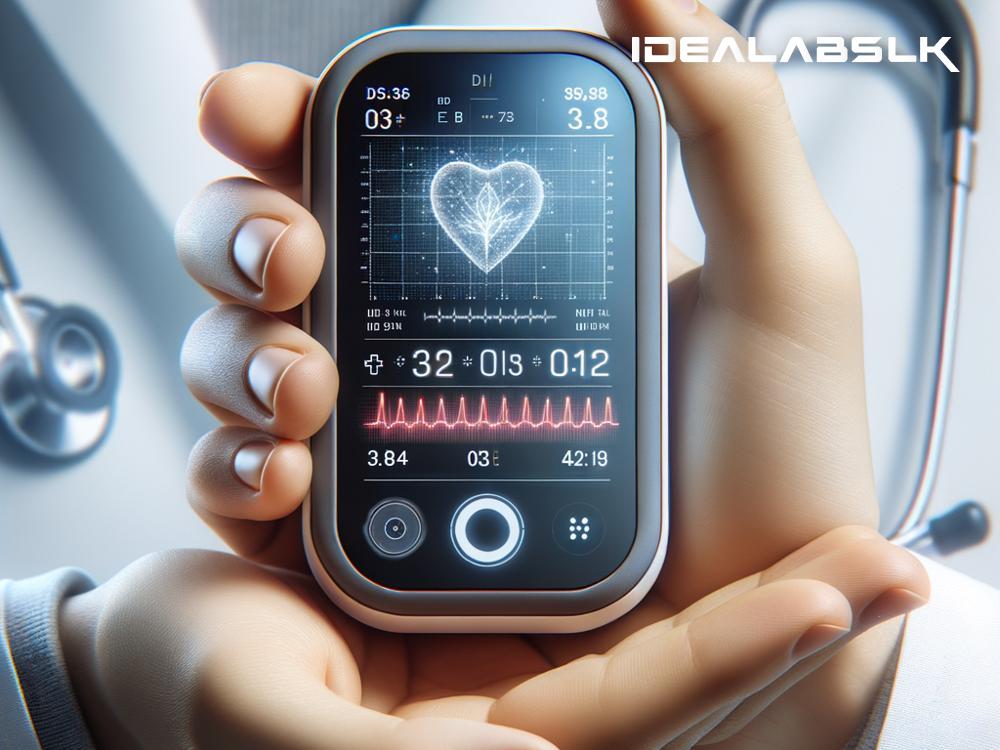AI in Portable Medical Gadgets: Revolutionizing On-the-Go Diagnostics
In today's fast-paced world, technology has become an indispensable part of our lives, and the healthcare sector is no exception. One of the most groundbreaking advancements is the integration of Artificial Intelligence (AI) into portable medical gadgets, revolutionizing the way we approach diagnostics on the go. These innovations have not only made healthcare more accessible but also significantly more efficient. Let's dive deep into how AI is changing the game for on-the-go diagnostics through portable medical gadgets.
What is AI and How Does it Work in Portable Medical Gadgets?
AI, in simple terms, is a technology that enables machines to simulate human intelligence. It includes learning from data, making decisions, and solving problems. When AI is integrated into portable medical gadgets, these devices can analyze complex health data quickly and offer accurate diagnoses or health monitoring, almost like having a doctor in your pocket.
The Impact of AI on Portable Medical Gadgets
-
Early Detection and Prevention: AI-powered gadgets can monitor vital signs and detect abnormalities earlier than traditional methods. For example, wearable devices that monitor heart rate, blood pressure, or glucose levels can alert users to potential health issues before they become serious, enabling timely intervention.
-
Personalized Care: These gadgets can analyze an individual's health data over time and tailor recommendations or treatments specifically to them. This personalized approach improves the effectiveness of healthcare and can lead to better health outcomes.
-
Increased Accessibility: Portable medical gadgets make healthcare accessible to people in remote areas or those who have difficulty visiting healthcare facilities. By providing diagnostics at their fingertips, these gadgets are breaking down barriers to healthcare access.
-
Empowering Patients: AI in portable medical gadgets empowers patients to take an active role in their healthcare. With real-time data and insights about their health, individuals can make informed decisions and manage their health more proactively.
Examples of AI-Powered Portable Medical Gadgets
-
Smartwatches and Fitness Trackers: Beyond counting steps, these devices use AI to monitor heart rate, sleep patterns, and even detect irregular heartbeats or sleep apnea.
-
Portable Diagnostic Devices: Gadgets like handheld ultrasound devices or blood analysis tools can now provide instant results for various conditions, from pregnancy to detecting infections, making diagnostics quicker and saving trips to a medical facility.
-
Glucose Monitors: For people with diabetes, AI-powered continuous glucose monitoring devices can predict blood sugar trends and offer guidance on managing their condition without the need for painful finger-prick tests.
-
Mental Health Apps: AI-driven apps can monitor users' speech or typing patterns to detect signs of mental health issues like depression or anxiety, offering support or suggesting when to seek professional help.
Challenges and Considerations
While the benefits are immense, there are challenges to consider, such as privacy and security of health data, ensuring these gadgets are accurate and reliable, and making them affordable and accessible to everyone, regardless of socio-economic status.
The Future of AI in Portable Medical Gadgets
The future looks promising, with ongoing advancements in AI and technology. We can expect even more innovative gadgets capable of diagnosing a wider range of conditions, more accurately, and in real-time. Additionally, as AI technology evolves, these gadgets will become more personalized, learning from the global pool of health data while respecting individual privacy.
Conclusion
AI in portable medical gadgets is undeniably transforming healthcare, making it more accessible, efficient, and personalized than ever before. These gadgets are not just convenient; they're potentially life-saving. However, as we embrace this technology, we must also navigate the challenges it presents carefully. Embracing these innovations responsibly can lead us to a future where quality healthcare is truly in the palm of our hands, available to everyone, everywhere, at any time. As we continue to develop and integrate AI into healthcare, the potential for improving global health outcomes is immense, signaling a new era of medical care that is both empowered and empowering.

